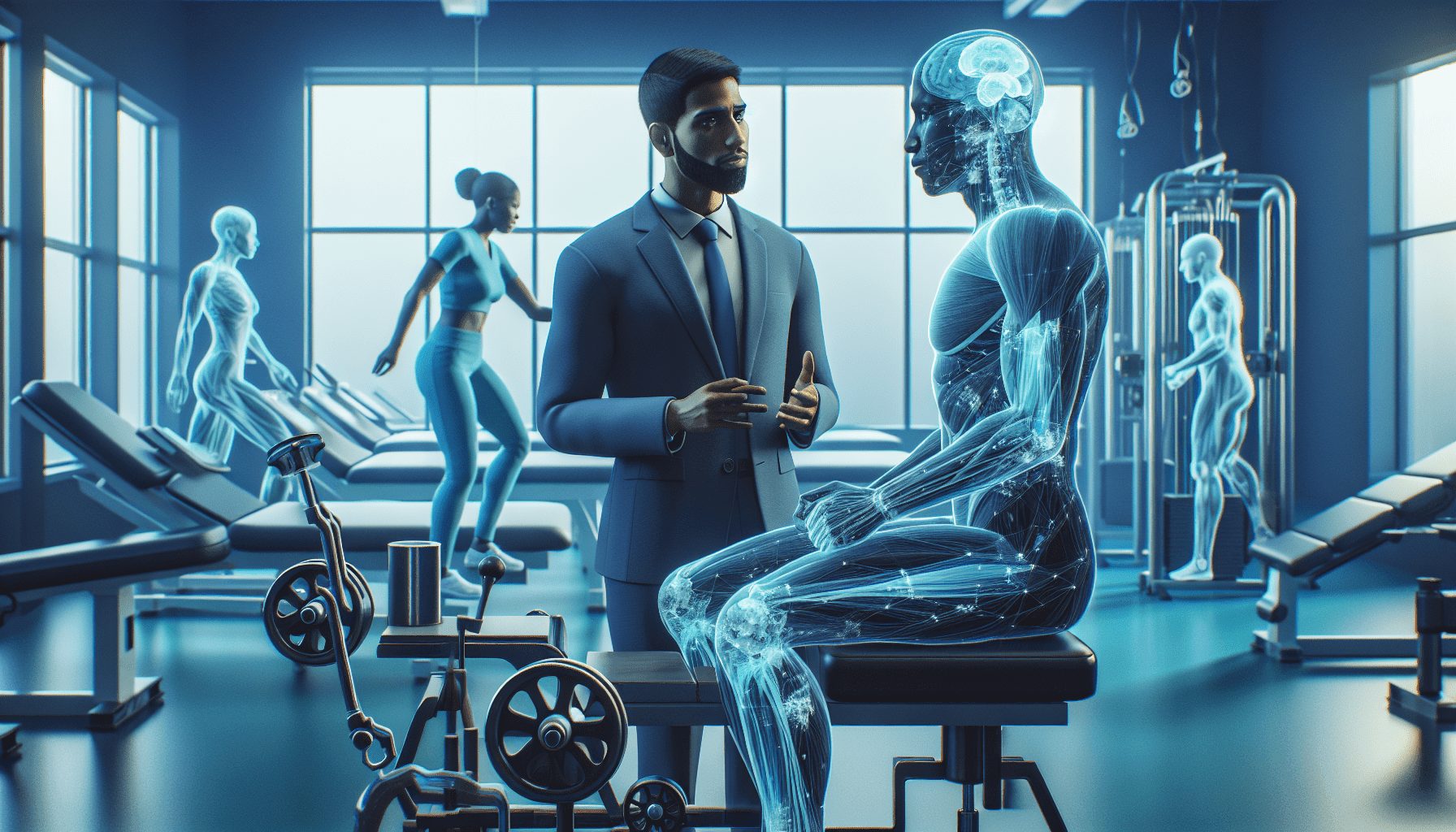AI Recruiter: How They Use AI Screening Tools
In today’s rapidly evolving job market, AI recruiters are revolutionizing how companies find and select top talent. These innovative recruiters leverage the power of AI screening tools to streamline the hiring process, increase efficiency, and eliminate bias.
Gone are the days of manually sifting through stacks of resumes and conducting time-consuming interviews. With the advent of AI in recruitment, organizations can now leverage cutting-edge technology to identify the most qualified candidates quickly and effectively.
This article will provide an overview of AI recruiters and how they utilize AI screening tools to transform the hiring landscape. We will explore the benefits of these tools, their inner workings, as well as the challenges and limitations they may present. Additionally, we will discuss best practices for leveraging AI and provide insights into the future of AI in recruiting.
So, buckle up and prepare to embark on a journey into the fascinating world of AI recruiters and their game-changing use of AI screening tools. By the end of this article, you’ll have a comprehensive understanding of how these tools reshape the recruitment process and how you can leverage them to gain a competitive edge in talent acquisition.
Benefits of AI Screening Tools
In recruiting, AI screening tools have emerged as game-changers, revolutionizing how companies identify and evaluate potential candidates. These tools leverage the power of artificial intelligence to streamline and optimize the recruitment process, offering a wide range of benefits to employers and job seekers.
Improved Efficiency
One of the primary advantages of AI screening tools is their ability to enhance the recruitment process’s efficiency significantly. Traditional methods of screening resumes and shortlisting candidates can be time-consuming and labor-intensive. However, with the advent of AI, recruiters can now automate these tasks, allowing them to process a larger volume of applications in a shorter period.
By utilizing sophisticated algorithms, AI recruiters can swiftly analyze and parse through resumes, extracting relevant information such as work experience, education, and skills. This automation saves valuable time and ensures that recruiters can focus their efforts on more strategic aspects of the hiring process, such as conducting interviews and assessing cultural fit.
Enhanced Accuracy
Another noteworthy advantage of AI screening tools is their heightened accuracy in candidate evaluation. Human recruiters are prone to biases and subjectivity, which can inadvertently lead to overlooking qualified candidates or selecting underqualified ones. Conversely, AI operates on objective criteria, enabling a more unbiased and fair evaluation of applicants.
By employing advanced techniques such as resume parsing and keyword matching, AI screening tools can identify candidates with the specific skills and qualifications employers seek. These tools can also perform skills assessments, enabling recruiters to gauge a candidate’s proficiency in various areas. Additionally, AI’s video interviews and personality assessments can provide valuable insights into a candidate’s communication skills and cultural fit.
Elimination of Bias
One of the most significant advantages of AI screening tools is their potential to eliminate unconscious biases that can creep into the recruitment process. Human recruiters may inadvertently favor candidates based on gender, race, or educational background. This can lead to a lack of diversity and hinder the creation of an inclusive workforce.
However, AI operates solely on objective data, disregarding personal characteristics irrelevant to job performance. By basing candidate selection on merit, AI screening tools can help organizations build diverse and inclusive teams that reflect the true talent pool.
In conclusion, AI screening tools offer a host of benefits to both employers and job seekers. From improved efficiency and enhanced accuracy to eliminating bias, these tools can potentially revolutionize how companies recruit and hire talent. As technology continues to advance, it is expected that the role of AI in recruiting will only grow, leading to even more innovative and effective solutions in the future.
AI recruiters and their use of AI screening tools empower organizations to make data-driven decisions, ensuring that the best candidates are identified and selected. With the ability to improve efficiency, enhance accuracy, and eliminate bias, AI screening tools are reshaping the recruitment landscape and enabling companies to build diverse and high-performing teams.
How AI Screening Tools Work
In the recruiting world, AI screening tools have revolutionized how candidates are evaluated and selected for job positions. These advanced technologies leverage the power of artificial intelligence to streamline the hiring process, making it faster, more accurate, and devoid of biases. Let’s delve into the inner workings of these tools and explore the different methods they employ to identify the most suitable candidates.
Resume Parsing
One of the primary functions of AI screening tools is resume parsing. This process involves extracting relevant information from a candidate’s resume and organizing it into a structured format. By analyzing the content and identifying key details such as work experience, education, and skills, AI-powered algorithms can quickly assess whether an applicant meets the basic qualifications for a job.
Keyword Matching
AI screening tools utilize keyword matching to refine the candidate selection process further. By comparing the keywords from a job description to the content of a candidate’s resume, these tools can identify the most relevant matches. This technique allows recruiters to quickly identify candidates who possess the necessary skills and experience, saving valuable time and effort.
Skills Assessment
In addition to analyzing resumes, AI screening tools also conduct skills assessments. These assessments evaluate a candidate’s proficiency in specific areas required for the job. The tools can objectively measure a candidate’s abilities through various methods, such as online tests or interactive tasks, providing valuable insights to recruiters.
Video Interviews
Another powerful feature of AI screening tools is the ability to conduct video interviews. Instead of scheduling and conducting numerous in-person interviews, these tools allow recruiters to interview candidates through video platforms remotely. Using AI algorithms, the tools can analyze facial expressions, tone of voice, and body language better to understand a candidate’s suitability for a role.
Personality Assessments
AI screening tools also incorporate personality assessments to gauge a candidate’s compatibility with a company’s culture and team dynamics. These assessments use various techniques, such as detailed questionnaires or interactive games, to evaluate a candidate’s personality traits, strengths, and weaknesses. By leveraging AI, recruiters can gain valuable insights into a candidate’s potential fit within the organization.
By employing these various methods, AI screening tools provide recruiters with a comprehensive evaluation of candidates. From analyzing resumes to conducting video interviews and assessing personality traits, these tools offer a more efficient and objective approach to the hiring process.
To learn more about AI in recruiting, please visit Engaged Headhunters, a leading provider of AI recruiting solutions.
Challenges and Limitations
While AI screening tools offer numerous benefits in the recruitment process, they have challenges and limitations. It is important to be aware of these factors to leverage AI’s power while effectively mitigating potential drawbacks.
Lack of Human Judgment
One of the main limitations of AI screening tools is the lack of human judgment. While these tools can efficiently analyze and match resumes based on predetermined criteria, they may struggle to fully comprehend the contextual nuances and subjective qualities that human recruiters consider when evaluating candidates. For instance, AI algorithms may fail to recognize the relevance of certain experiences or skills not explicitly mentioned in a resume. This can result in qualified candidates being overlooked or underrepresented in the hiring process.
Potential Bias in AI Algorithms
Another challenge is the potential for bias in AI algorithms. Since AI systems are trained on historical data, they may inadvertently perpetuate hiring bias. For example, suppose the historical data used to train an AI algorithm is biased towards a certain gender or ethnicity. In that case, the algorithm may prioritize or penalize candidates based on these factors, leading to discriminatory outcomes. It is crucial for organizations to regularly monitor and evaluate the performance of AI screening tools to ensure fairness and mitigate bias.
Technical Limitations
AI screening tools also have certain technical limitations that can impact their effectiveness. For instance, these tools heavily rely on accurate data inputs, such as well-structured resumes and well-defined keywords. If a candidate’s resume is poorly formatted or lacks relevant keywords, the AI algorithm may struggle to assess their qualifications accurately. Additionally, AI screening tools may face challenges in accurately evaluating more subjective aspects of a candidate, such as soft skills or cultural fit, which are often crucial for success in a role.
Despite these challenges, it is important to note that AI screening tools continue to evolve and improve. By combining AI with human judgment, regularly updating and testing algorithms, and ensuring fairness and bias-free screening, organizations can maximize the benefits of AI while minimizing its limitations.
In the next section, we will explore the best practices for AI screening in more detail, providing actionable strategies for effectively leveraging AI tools in the recruitment process. Stay tuned!
Recommended Reads:
Best Practices for AI Screening
Combining AI and Human Judgment
When it comes to AI screening in the recruitment process, one of the best practices is to combine the powers of artificial intelligence with human judgment. While AI screening tools can efficiently analyze and process large volumes of data, it is important to remember that they are not infallible. Human intuition and expertise are invaluable in making final decisions about candidates.
By leveraging the strengths of AI and human judgment, recruiters can achieve a more comprehensive and well-rounded evaluation of candidates. AI tools can quickly filter and shortlist candidates based on predefined criteria like skills and qualifications. However, human recruiters bring a deeper understanding of the nuances and intangibles that algorithms, such as cultural fit and soft skills, cannot easily measure.
By involving human judgment in decision-making, recruiters can ensure that candidates are evaluated fairly and accurately. It allows for a more holistic assessment, considering factors that may not be captured by AI screening tools alone. AI recruiters can provide valuable insights and recommendations, but ultimately, the human touch adds the necessary context and intuition.
Regularly Updating and Testing Algorithms
Another crucial best practice for AI screening is regularly updating and testing the algorithms used in the screening process. AI technology is constantly evolving, and algorithms must be refined to keep up with the changing demands of the recruitment landscape. By staying up-to-date with AI advancements, recruiters can ensure that their screening tools remain effective and relevant.
Regular algorithm updates can help improve the accuracy and efficiency of AI screening tools. New features and enhancements can be incorporated to address specific challenges or limitations identified in the recruitment process. By proactively monitoring and fine-tuning the algorithms, recruiters can optimize their AI screening tools for better performance.
It is also essential to test the algorithms thoroughly to ensure their reliability and effectiveness. This includes conducting rigorous validation and benchmarking exercises to measure the performance of the AI screening tools against established criteria. Through testing, recruiters can identify any potential biases or weaknesses in the algorithms and make necessary adjustments to ensure fair and unbiased screening.
Ensuring Fairness and Bias-Free Screening
Fairness and unbiased screening are critical considerations when using AI in recruitment. While AI screening tools can potentially eliminate human biases, they can also inadvertently introduce their own biases if not properly designed and monitored. Therefore, ensuring fairness and bias-free screening is a vital best practice.
To achieve fairness, it is important to regularly audit and evaluate the AI algorithms for any potential biases. This involves analyzing the data used to train the algorithms and identifying any patterns or biases. By using diverse and representative data sets during training, recruiters can mitigate the risk of biased outcomes.
Transparency is also key in ensuring fairness. Candidates should be informed about using AI screening tools and the criteria used to evaluate their applications. This transparency builds trust and allows candidates to understand the process better.
In addition, recruiters should regularly monitor and review the outcomes of the AI screening tools to identify any potential bias or discrimination. By closely examining the results and analyzing any discrepancies, recruiters can make necessary adjustments to ensure fair and unbiased screening.
By combining AI and human judgment, regularly updating and testing algorithms, and ensuring fairness and bias-free screening, recruiters can harness the power of AI screening tools to enhance the efficiency and effectiveness of their recruitment processes. This balanced approach allows for a more comprehensive evaluation of candidates while minimizing the risk of bias and discrimination.
Future of AI in Recruiting
As technology continues to evolve at a rapid pace, the future of AI in recruiting looks promising. With advancements in Natural Language Processing, integration of Machine Learning, and a growing emphasis on Ethical Considerations, AI is set to revolutionize the recruitment industry even further.
Advancements in Natural Language Processing
One of the key areas where AI is poised to make significant strides is in Natural Language Processing (NLP). NLP enables machines to understand and interpret human language, allowing AI recruiters to analyze vast amounts of text data such as resumes, job descriptions, and candidate profiles.
With NLP, AI recruiters can extract valuable information from unstructured data, making identifying relevant skills, qualifications, and experience easier. This technology can also help identify patterns and trends, enabling recruiters to make more informed decisions about potential candidates.
Integration of Machine Learning
Integrating Machine Learning into AI recruiting systems is another exciting development on the horizon. Machine Learning algorithms can analyze large datasets, learn from patterns, and make predictions or recommendations based on that knowledge.
By leveraging Machine Learning, AI recruiters can continuously improve their screening tools and algorithms. These systems can learn from previous hiring decisions and adapt over time, allowing recruiters to refine their criteria and find the best candidates for the job.
Ethical Considerations
As AI becomes more prevalent in the recruitment process, it is crucial to address the ethical considerations that arise. The potential for bias in AI algorithms is a significant concern, as the algorithms are only as unbiased as the data they are trained on.
AI recruiters must regularly review and update their algorithms to ensure fairness and mitigate bias. They must also ensure that the training data used is diverse and representative of the population. Additionally, implementing regular audits and testing of AI screening tools can help identify and rectify any potential biases.
Moreover, organizations must provide transparency and clear explanations when using AI in recruiting. Candidates should be informed about the use of AI in the hiring process and have the opportunity to address any concerns they may have.
By addressing these ethical considerations, AI recruiters can strive for fairness and inclusivity, creating a more equitable recruitment process for all candidates.
In conclusion, the future of AI in recruiting holds great promise. Advancements in Natural Language Processing, the integration of Machine Learning, and a focus on Ethical Considerations are set to propel AI recruiters to new heights. By harnessing the power of AI technology while ensuring fairness and inclusivity, recruiters can streamline their processes and find the best candidates for the job.
Conclusion
In conclusion, AI recruiters and AI screening tools have revolutionized the recruitment process, offering numerous benefits for employers and candidates. Implementing AI screening tools has significantly improved efficiency, enhanced accuracy, and eliminated bias in the hiring process.
One of the key advantages of AI screening tools is their ability to improve efficiency. By automating time-consuming tasks such as resume parsing, keyword matching, and skills assessment, AI recruiters can swiftly process large volumes of candidate data, allowing hiring managers to focus on evaluating the most qualified individuals. This streamlined approach saves time and resources, enabling companies to make more informed hiring decisions.
Moreover, AI screening tools also offer enhanced accuracy in candidate evaluation. Through advanced algorithms and machine learning techniques, these tools can analyze vast amounts of data and identify the most suitable candidates for a particular role. By considering factors such as experience, skills, and qualifications, AI recruiters can ensure that only the most qualified candidates progress to the next stages of the hiring process.
Another significant benefit of AI screening tools is the elimination of bias. Unconscious biases can influence traditional recruitment processes, leading to unfair outcomes. However, AI recruiters can mitigate this issue by using objective criteria to evaluate candidates. These tools focus solely on the qualifications and skills required for a specific role, disregarding demographic or background information that may introduce bias into the decision-making process. This helps create a more diverse and inclusive workforce where individuals are evaluated solely on their merits.
While AI screening tools offer numerous benefits, it is important to acknowledge their challenges and limitations. One of the primary concerns is the lack of human judgment. While AI algorithms can process vast amounts of data, they may struggle to understand nuanced information or context that human recruiters can easily grasp. Therefore, it is crucial to strike a balance between AI and human judgment, combining AI tools’ efficiency with human recruiters’ expertise and intuition.
Additionally, there is the potential for bias in AI algorithms. These algorithms are trained on historical data, which may contain inherent biases. If not carefully monitored and updated, AI screening tools can perpetuate existing biases in the hiring process. To mitigate this risk, it is essential to regularly update and test the algorithms, ensuring they are fair, transparent, and bias-free.
Furthermore, technical limitations can also pose challenges for AI recruiters. While AI tools have made significant advancements, they may still struggle with complex tasks that require human interaction, such as assessing video interviews or conducting personality assessments. It is crucial to recognize the limitations of AI screening tools and supplement them with appropriate human involvement when necessary.
It is recommended to follow best practices to maximize the benefits of AI screening tools. This includes combining AI and human judgment leveraging the strengths to make informed hiring decisions. Regularly updating and testing algorithms is essential to ensure optimal performance and fairness in recruitment. Furthermore, organizations must prioritize fairness and bias-free screening, actively monitoring and addressing potential potential biases.
Looking ahead, the future of AI in recruiting holds promising advancements. The continued development of Natural Language Processing will enable AI recruiters to understand and interpret complex human language, improving the accuracy of resume parsing and keyword matching. Integration of Machine Learning will allow AI screening tools to learn and adapt based on feedback, continuously improving their performance and effectiveness. As AI technology progresses, organizations and policymakers must also address the ethical considerations surrounding AI in recruiting, ensuring that the use of these tools aligns with ethical standards and respects the privacy and rights of candidates.
In conclusion, AI recruiters and their use of AI screening tools have transformed the hiring landscape, offering improved efficiency, enhanced accuracy, and the elimination of bias. By employing best practices and considering future advancements and ethical considerations, organizations can harness the power of AI to build diverse and high-performing teams. Embracing the potential of AI in recruiting is crucial in today’s competitive job market, enabling companies to find the best talent and candidates to secure their dream positions.
To learn more about AI recruiters and AI screening tools, visit Engaged Headhunters, an AI recruitment agency that leverages cutting-edge technology to optimize the hiring process.







